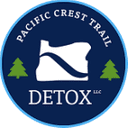
According to the National Institute on Drug Abuse (NIDA), roughly 32 million people in the world abuse opiates. This is including substances like prescription pain killers and illicit narcotics, such as heroin. With more than 50,000 deaths last year on drug overdoses, opiates themselves have reached the epidemic stage in this country. In order for one to combat such a travesty, they must endure opiate withdrawal and detox.
When an opiate enters the body, it is directly effecting the central nervous system, which includes the brain, heart and lungs. This, of course, stands to reason that when a person has been abusing opiates for a long time, standard detox can be a potentially painful experience.
Opiate Withdrawal and Detox Importance
Opiate withdrawal and detox is tough on the client, there is no doubt about that. It's important to remember that comprehensive detox from opiates, such as heroin and morphine, is not deadly. It is, however, severely important to remember that risk of suicide or suicidal ideations is common. This is why it's important to enter detox programs. That is why we provide a safe and caring environment for those detoxing off opiates. We employ a thorough pre and post admission assessment on each client as well as round- the-clock monitoring by a trained staff to ensure psychological stability of our clients.
One also has to consider that symptoms of opiate withdrawal associate with ailments such as influenza infection, which if severe, can put them at risk of fever. This in turn makes for the detox process to become even more uncomfortable, and if not monitored and treated can potentially be fatal.
Like most substances, the detox from opiate withdrawals are unique for everyone. This means that symptoms of opiate withdrawals range from mild to severe. Early withdrawal symptoms usually begin within the first 6-30 hours from the cessation of use, but can even begin while still using. These symptoms include tearing up, sweating, agitation, anxiety, muscle aches, hypertension or seizures. Late withdrawal symptoms, which usually ranges from 72 hours to a week, includes symptoms of nausea, stomach cramps, diarrhea, depression and cravings.
Reach Your Goals At PCT Detox
The goal of a medical detox center, like Pacific Crest Trail Detox, is to help alleviate difficulty. During the detox process, the client is monitored by the Clinical Opiate Withdrawal Scale(COWS) by a clinician on staff. This 11-point scale rates the most common symptoms associated with withdrawal each with a number range. It's then up to the client to rate the level of their symptoms. This way, the symptoms can be monitored and the detox staff can be aware if they are worsening. If they are getting worse, the staff will know that more medical attention will be needed for the client.
In the United States, we are seeing an increasing number of deaths from opiate overdoses every year. We at Pacific Crest Trail Detox will help you face opiate withdrawal and detox. By providing the client with a safe environment and comprehensive plan, we can assure their first step lands firmly on the right path.
-J. Dalton Williams
References:
National Institute on Drug Abuse. (NIDA)
